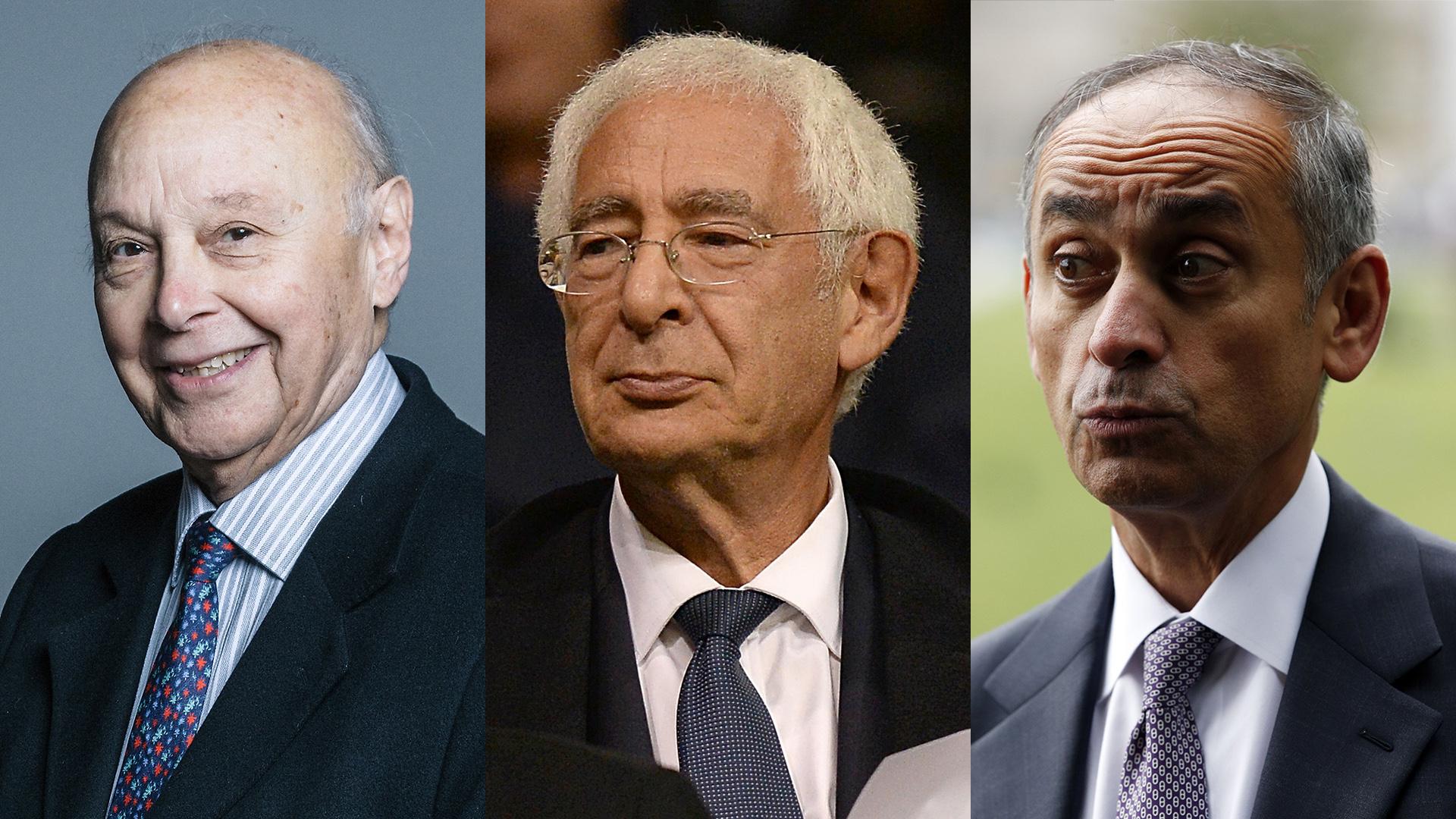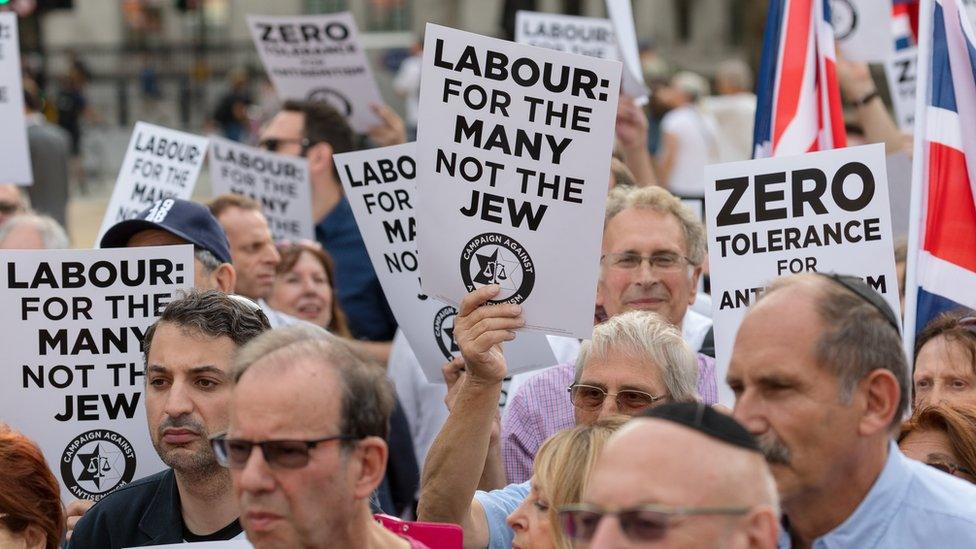Three Labour peers resign whip over 'anti-Semitism'
- Published

Lord Turnberg, Lord Triesman and Lord Darzi have resigned the Labour whip
Three peers have left the Labour group in the Lords, accusing the party of anti-Semitism, Newsnight has learned.
Lord Triesman, general secretary between 2001 and 2004, accused Jeremy Corbyn of anti-Semitism and said the party was no longer "a safe environment" for Jewish people.
Lord Darzi, meanwhile, will sit as an independent and Lord Turnberg said he feared "for the future" of the party.
Labour said it "completely rejects these false and offensive claims".
"The Labour Party at all levels is implacably opposed to anti-Semitism and is determined to root out this social cancer from our movement and society," a party spokeswoman said.
Former Health Minister Lord Darzi said that as an Armenian descendant of a "survivor of the Armenian genocide", he had "zero tolerance to anti-Semitism," adding that his decision to resign the whip "has not been lightly taken".
Former president of the Royal College of Physicians Lord Turnberg told BBC Newsnight that his differences "lie with the party leadership and machine and not with my very supportive colleagues in the Lords who share my values".
"It is not just the policies on foreign affairs... and Brexit vacillation and bypassing parliamentary opinion but the overt anti-Semitism that permeates the party machine that is no longer possible for me to tolerate," he said.
'Deep prejudice'
Labour said it was taking "decisive action against anti-Semitism" and had doubled the number of staff dedicated to dealing with complaints and cases.
"Our records show that anti-Semitism cases that have gone through the stages of our disciplinary procedures since September 2015 account for about 0.06% of the party's membership," the spokeswoman said.
"This represents a tiny minority - but one anti-Semite is one too many and we will continue to act against this repugnant form of racism."
But, in his resignation letter to Labour's leader in the House of Lords, Baroness Smith, Lord Triesman said Mr Corbyn "and his circle are anti-Semitic, having never once made the right judgement call about an issue reflecting deep prejudice".
"My sad conclusion is that the Labour party is very plainly institutionally anti-Semitic," he wrote.
Anti-Semites were "shielded", while "serious party members are thrown out unceremoniously", he said. "The experience of life in the party has become sickening."
The remarks represent the strongest personal attack on the Labour leader from within the party since Margaret Hodge reportedly called Mr Corbyn an anti-Semitic racist last year.
Lord Triesman told Newsnight the party had been "a central plank of my political life for over 50 years".
But it had now "slipped into the familiar gutter of so many of the hard left".
"It is a painful decision," the former trade union leader told Newsnight.
"I remain completely aligned to the values I've had over all these years but I can no longer take direction from a leadership that is institutionally anti-Semitic."
'Unicorn delusion'
Lord Triesman wrote: "I always said it was worth hanging on to fight so long as there was a prospect of winning.
"I now don't believe with this leadership there is."
He said hoping "something will turn up to change it all" was a "unicorn delusion".
The resignations came as Labour's disputes panel met to discuss the suspension of MP Chris Williamson.
Mr Williamson was suspended earlier this year after saying Labour had "given too much ground" over anti-Semitism.
In February, nine MPs quit Labour, some citing the leadership's handling of anti-Semitism as their reason for leaving.
Luciana Berger said she had come to the "sickening conclusion" the party had become institutionally anti-Semitic and she was "embarrassed and ashamed" to stay.
Joan Ryan claimed Labour's leadership had allowed "Jews to be abused with impunity".
And Ian Austin said Jeremy Corbyn was "incapable" of dealing with anti-Semitism.
In his letter, Lord Triesman also cited Labour's policy position on Brexit, which he said had "encouraged xenophobia", and on defence and Nato, which he called "worse than ambiguous".
You can watch Newsnight on BBC Two weekdays at 22:30 or on iPlayer, subscribe to the programme on YouTube, external and follow it on Twitter, external.
- Published8 July 2019

- Published18 November 2020
